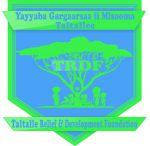The Sizable CBD Problem That Most Investors Are Overlooking
The U.S. cannabidiol market could possibly be a lot more of an uphill climb than you almost certainly understand.
You would certainly be hard-pressed at this time to locate an industry that is faster-growing legal cannabis. Between 2018 and 2024, the report that is newest from Arcview marketing research and BDS Analytics, “State regarding the Legal Cannabis areas,” predicts a near quadrupling in global licensed-store product sales to north of $40 billion. This much better than 24% mixture yearly development price through 2024 is a large cause of the quick rise in cannabis shares in the last few years.
But there is a distinct segment inside the marijuana motion that is generating a lot more buzz, without really producing a buzz. I am speaking about cannabidiol (CBD).
Image supply: Getty Images.
Cannabidiol has grown to become Wall Street’s “next-big-thing” investment
Cannabidiol may be the cannabinoid that is nonpsychoactive recognized for the perceived medical advantages. We phrase it as “perceived,” as the U.S. Food and Drug management acknowledges simply a rather tiny amount of advantages for CBD, but otherwise views the cannabinoid as a sizable unknown that needs further screening.
But that is maybe not the instance among the public. People throughout the united states look in love with the thought of CBD-based derivatives while the possible benefits that are medical could bring, including pain relief to halting anxiety. In line with the Brightfield Group, product sales of CBD services and products within the U.S. alone are slated to cultivate from $591 million in 2018 to $22 billion by 2022. This works out to an annualized growth rate of 147%, which blows broader cannabis sales growth out of the water for those of you keeping score at home.
This rise in product product sales will be authorized by the 2018 passing of the farm bill, that was signed into legislation by President Trump in December. This law that is new for the appropriate commercial creation of hemp, that will be high in CBD, and a heck of much easier much less high priced to cultivate than cannabis plants (that also have some mixture of CBD and tetrahydrocannabinol (THC), the cannabinoid that gets users high). What this means is hemp plants can be the origin for CBD extraction within the U.S. when you look at the months and years into the future.
Make no blunder about any of it, a number of large-scale Canadian businesses have jumped during the notion of becoming major CBD players in the usa. Six regarding the 14 major Canadian cannabis growers have actually established intends to enter the U.S. market, with another three growers likely to describe their plans, or result in the jump, inside the the following year. The ability is just too big to avoid, particularly given that CBD-infused derivatives ( ag e.g., oils, edibles, infused beverages, topicals, and concentrates) have actually a lot higher cost points and juicier margins than old-fashioned cannabis that are dried.
But there is one part of this course of action to go into the CBD that is lucrative market investors appear to be overlooking: that the U.S. CBD and hemp marketplace is somewhat more diverse and crowded compared to the Canadian cannabis market.
Image supply: Getty Photos.
CBD competition might be a larger drag than many investors understand
A cbd dispensary number of the biggest names when you look at the weed industry expect you’ll make their existence understood in the us’ CBD market, including Canopy development (NYSE:CGC) , HEXO (NYSE:HEXO) , and Tilray (NASDAQ:TLRY) .
As a quick summary:
- Canopy development is spending $150 million for a hemp-processing facility in ny State, and in addition acquired Colorado-based intellectual home business ebbu in November, that could help the growth of CBD-infused derivatives.
- HEXO announced the forming of a U.S. subsidiary a couple weeks ago, featuring its questionnaire noting its intention to push CBD products into eight U.S. states in 2020.
- Tilray acquired North American hemp foods company Manitoba Harvest for approximately $310 million in March. Irrespective of gaining use of a circulation community greater than 16,000 stores, Tilray may use this system to build up and sell CBD items in the us.
This plan of action to enter the U.S. market and make use of lofty sales development potential within the CBD market sounds great in writing. Nonetheless it overlooks the truth that, with commercial hemp manufacturing now appropriate, and established players already entrenched within the CBD market ( e.g., Charlotte’s Web and CV Sciences), it can be a climb that is uphill these founded brands.
Making issues more serious for the trio of Canopy development, HEXO, and Tilray is that smaller hemp and players that are CBD-derivative use of financing options in the us. The financing benefits these marijuana that is canadian have actually in Canada never convert into the united states of america.
